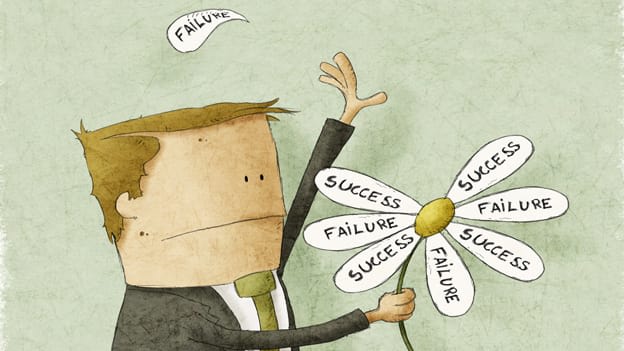Oops, I failed! Lessons on facing failure from a corporate leader

Oops, I failed!
How do you feel when you hear the term “fail” or “failure”? Coyote, the famous character from the animated series “The Road Runner Show,” failed most of the time. The story revolves around the two main characters Coyote, and the Road Runner where Coyote repeatedly attempts to catch the Road Runner, but he continues to fail. However, he never stopped chasing the goal despite failures. He is a very educated and creative character who manages to invent a new way every time, yet he fails. One of the reasons why Coyote failed is his inability to realize his mistakes and weakness.
The question is, how many people accept in a corporate world that they failed? What is the tolerance level we have for people who failed? An individual can be successful on the performance front; however, they fall on the softer yet important aspect. Today, I am celebrating my failures, and what I have learned from my mistakes.
Most of the people managers at mid-level could not move to the next level because either they are scared of failures, not prepared for failures, or don’t realize what it takes to move upwards. During my journey, I realized that many leadership programs talk about what will make you successful rather than what will humiliate you, crush or break you. There are five possible reasons why most mid-level managers or people like me have failed at some point of time in their career:
- Trying to do it all yourself (Do it all yourself): One of my bosses once said, “Life is beyond individual brilliance, and he is right.” The most apparent mistake by perfectionists or people who want things quickly is trying to do everything themselves, which impacts them in the long run. The right team structure is one of the ways to avoid such a situation.
- King without troops: Wars are won by armies (troops), not the crowd. A troop of one thousand people is better than a crowd of ten thousand people. The crowd can be emotionally connected; however, it won’t hold enemies for a long time. The leaders are either unable to hire strong second-line or don’t know what to hire, due to which they fail. The other important element is to hire more competent people who can do things better than you; otherwise, everything will come on you, which is bound to fail.
- No devolution of power: One of the common mistakes by a leader is they don’t delegate the authority or power to the chain, which delays in decision making, bureaucratic system and everyone is playing a role one level below. This is the biggest obstacle in succession planning because the team is mentally not ready or hesitant to make decisions. A good leader empowers their teams which lifts individual, function, and the organization.
- A frog in the well: At times, leaders don’t have an outside-in view because they have not ventured out of the well (organization operations) to see how vast the outer world thinks. In such a scenario, a person may stagnate at a particular job or a role and won’t grow beyond time. The outside view gives you a fresh perspective, helps build progressive policies or measures, and most importantly, builds an external persona, which is very important for any leader.
- Financial acumen: Imagine what will happen when a salesperson sells a product without knowing your cost of production or rock bottom price? They might end up selling at a loss or not able to take any strategic decision. The leaders need to have a holistic business overview and understanding to get the respect from their peers, internal and external stakeholders.
We all have to taste failures many times, and we need to remember that success won’t come so easily. Afterall, even the cartoon character Coyote took 26 episodes to catch The Road Runner. You don’t need to be afraid of failures, and most importantly, you need to let others step in to help you. Future managers need to work on all the above elements at the right time to avoid saying, “Oops, I failed!” This is my story. Are there any places where you as a leader failed?
















